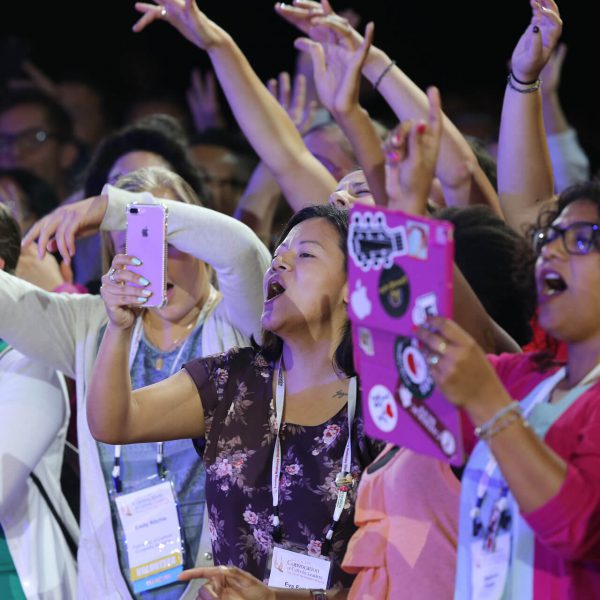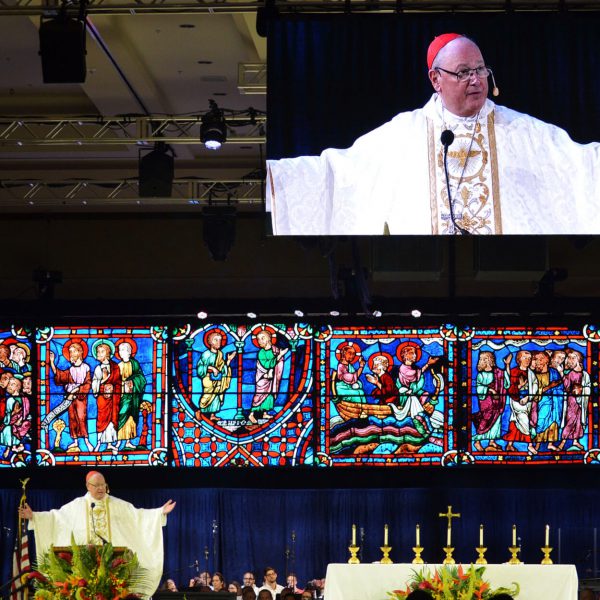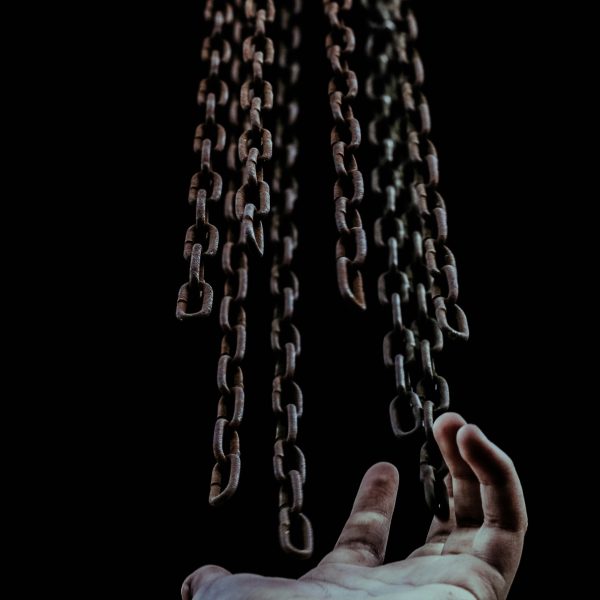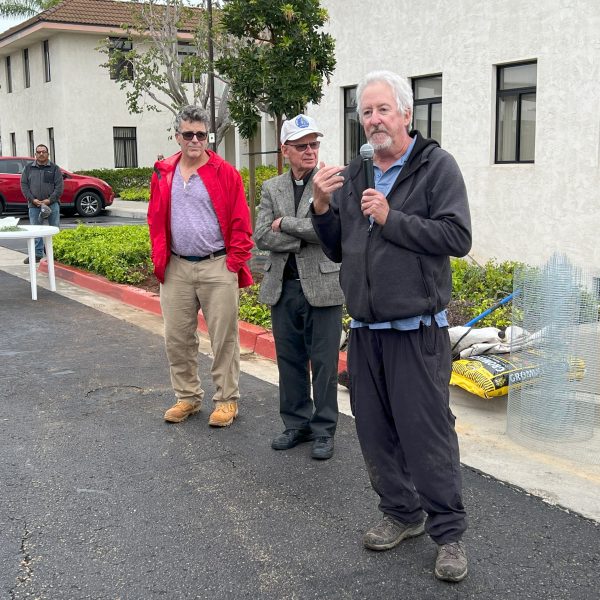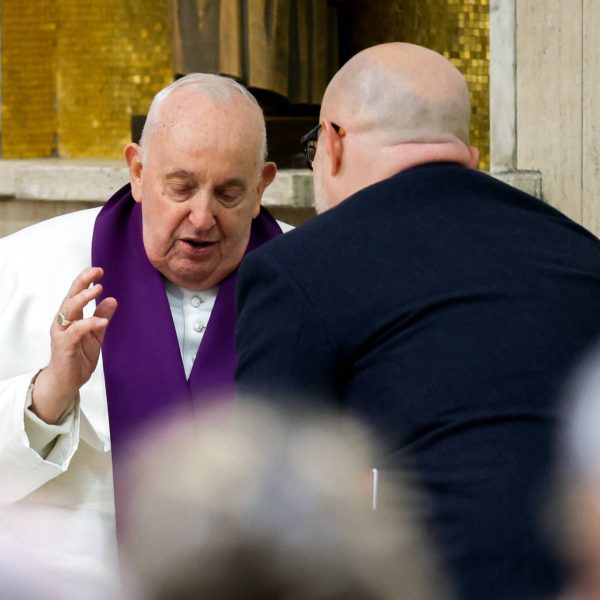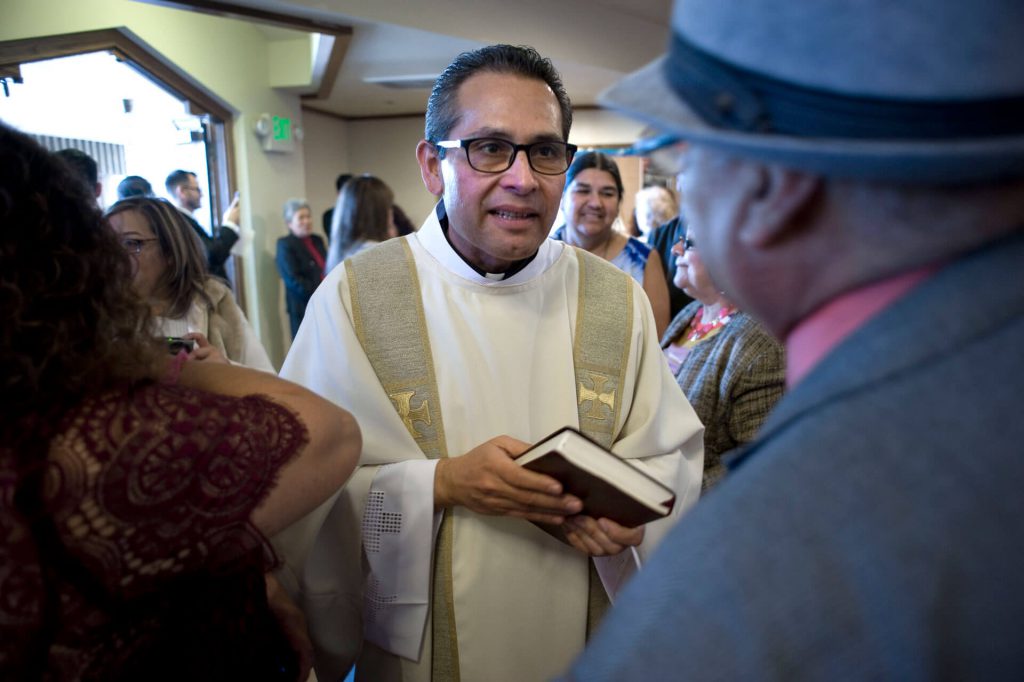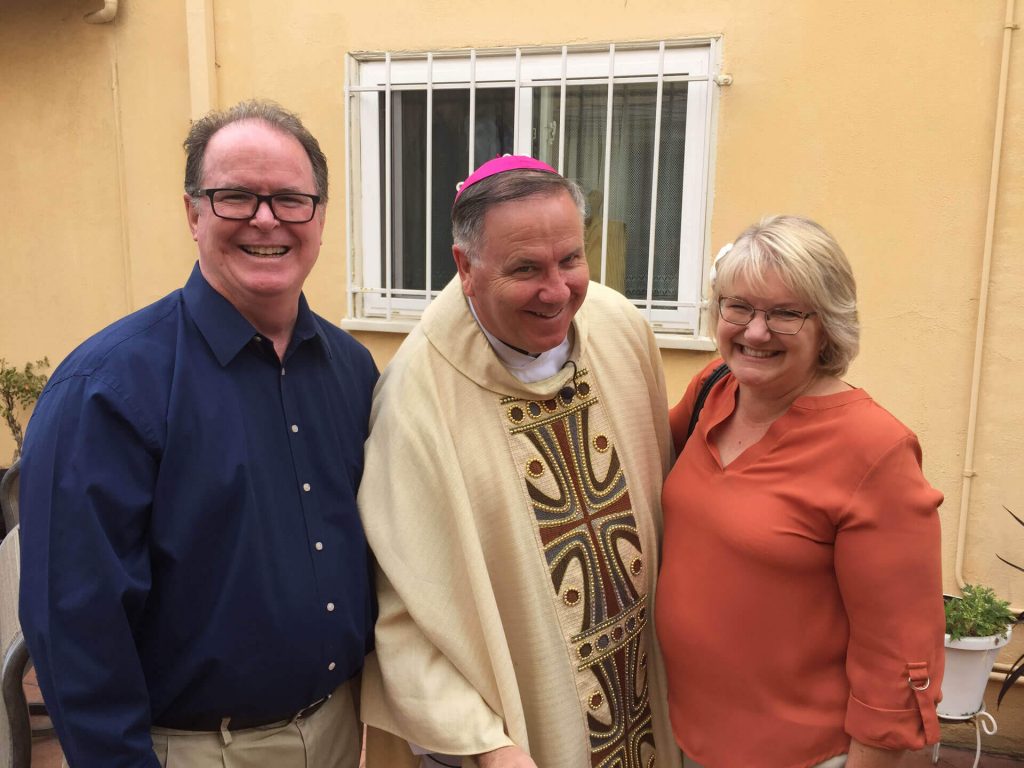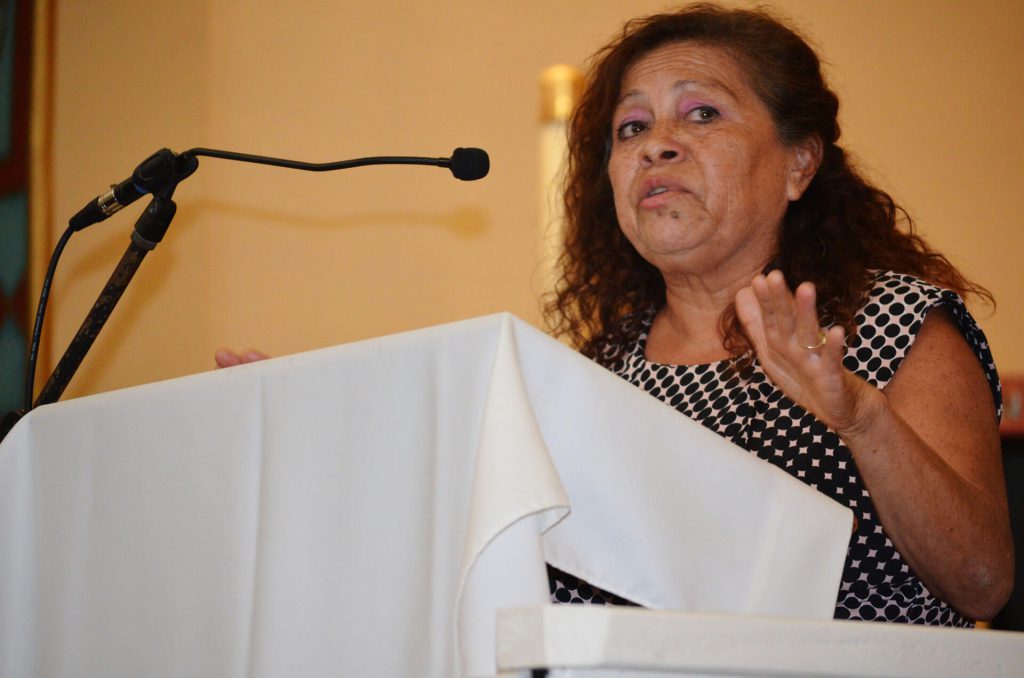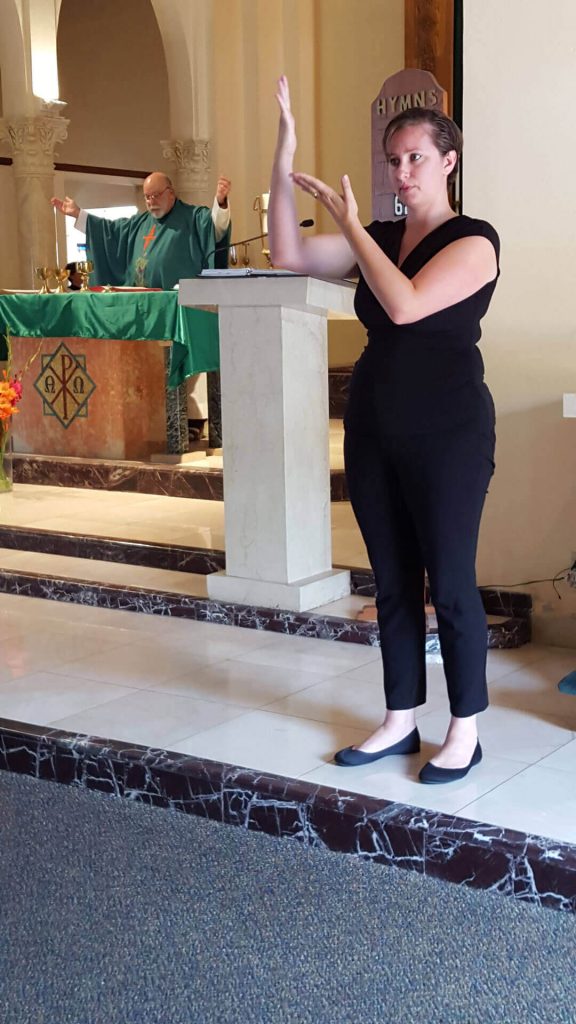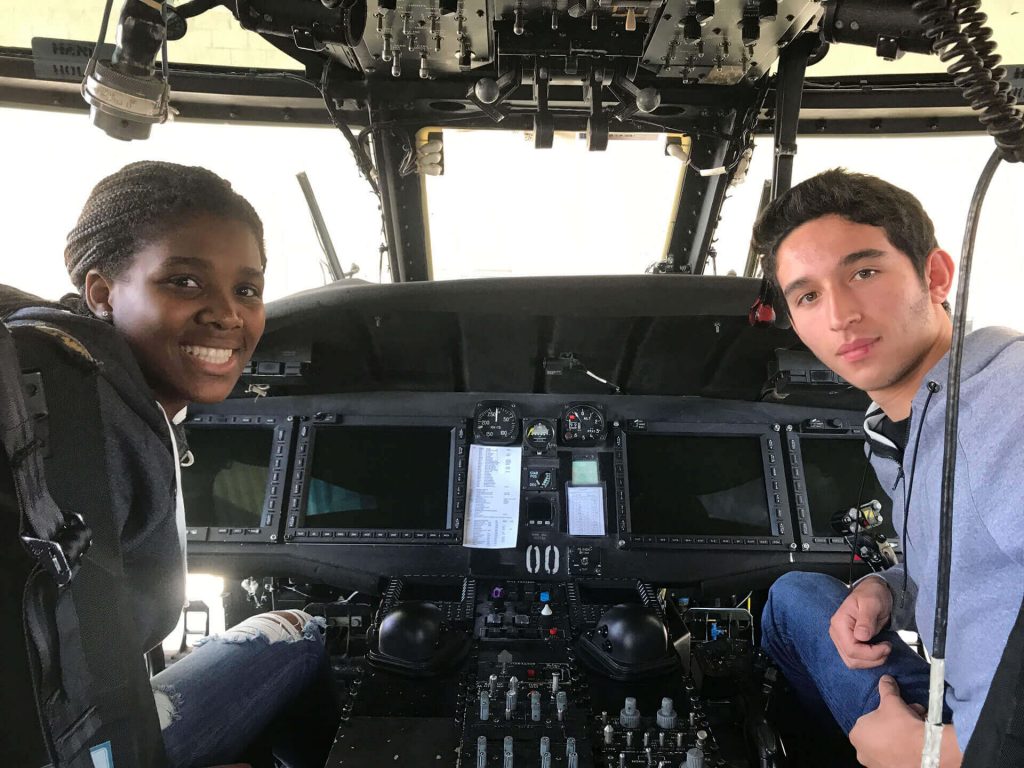ORLANDO — A convocation is a large, formal assembly of people. The U.S. Catholic bishops organized one — on overdrive.
In an unprecedented effort in size and scope, more than 3,100 Catholic leaders of all races and cultures turned out July 1-4 for a national convocation organized by the U.S. Church. They were mainly lay leaders from all levels of the Church, from local parishes, dioceses, pastoral offices, ministries, deaneries and organizations to those working in regional and national offices.
A total of 157 dioceses were present, including San Diego, which sent 21 leaders, among the largest delegations.
The U.S. bishops convened the leaders to re-energize them to fulfill their mission of evangelization at a time when the U.S. Church is experiencing significant changes and faces sweeping social pressures, as is the country at large. A total of 155 bishops and archbishops attended the convocation, as well as the cardinals from New York, Washington, Los Angeles and Boston.
Together, they heard fresh data on the changing landscape of U.S. Catholicism in plenary sessions, learned strategies for reaching out to those in the peripheries in breakout meetings, listened to powerful testimonials of conversion and even got some tips from the business world on the closing day.
The titles of some of the 66 breakout sessions gave a glimpse at the challenges the leaders are confronting: “Lord, who is my neighbor? Solidarity with the immigrant,” “Violence and unrest in our communities,” “The marginalization of motherhood: A growing periphery,” “Understanding the Church’s ministry with the addicted,” among others.
Through it all, the bishops invited the leaders to reflect on their own personal action as they carried out their work. And they cautioned them not to despair.
“It’s not all doom and gloom,” Miami Archbishop Thomas Wenski told them in opening remarks. “But we must present the Gospel from a position of confidence, from a position of hope, and we must present the Gospel with joy.”
In fact, Pope Francis’ apostolic exhortation “The Joy of the Gospel” served as the inspiration for the convocation. In it, the pope called on the Church to embark on a new chapter of evangelization, forming new missionary disciples of Jesus.
Such a new effort is well on its way, the bishops and other speakers stressed, as the nation’s Latino Catholics are participating in the multi-year Fifth National Encuentro of the Hispanic Ministry aimed at developing new disciples.
‘Courageous and creative’
The U.S. Conference of Catholic Bishops began planning the convocation in 2010 to forge deeper ties between Catholic leaders focused on respect-of-life issues, such as abortion and euthanasia, and those working on the social justice front, including poverty, immigration and war and peace abroad.
The convocation was seen as a way to emphasize the core social justice teaching of the Church, which spans all of these issues, said Bishop Robert W. McElroy, who led San Diego’s delegation.
Seven years later, the need for unity is as great as ever, as speaker after speaker told the delegates. Indeed, polls show that Americans are deeply divided along political, economic, racial and social lines, with Catholics largely following those trends.
There’s a need for the Church to do more, and to do things differently, if the faith is to thrive, some leaders said in the breakout workshops.
“I believe that Pope Francis is calling us to be courageous and creative,” said Joseph Horejs, associate director of the Diocese of San Diego’s Office for Evangelization and Catechetical Ministry. “We need to think outside the box to address the challenges that we face. Necessity is the mother of invention … Let’s do something! Let’s make a mess, as Pope Francis says!”
The Diocese of San Diego, in fact, carried out a formal process last fall to ask how it could better serve the needs of its diverse families and reach out to those in need of pastoral support, particularly young people. The recommendations from the synod, the first-of-its-kind in the nation, are beginning to be implemented in the parishes, with the goal being to make them vibrant, welcoming hubs of family life.
For the convocation, the organizers turned an expansive ballroom into a setting for plenary sessions and Masses held with a dazzling backdrop of classic artwork that changed daily. Though solemn, the Masses at times had the feel of a concert, with the speakers projected onto massive TV screens, and delegates jostling to take photos of their favorite Church celebrities.
At the Masses and nighttime reflections, renowned bishops acknowledged the challenges the Church faced and shared their own prescriptions for tackling them.
New York Cardinal Timothy Dolan was first up, sprinkling his comments with humorous anecdotes.
“We can already sense the fruits of this convocation, can we not?” he asked. “We can already sense the presence of Jesus. At breakfast, I saw a bishop pick up the tab of a layman. How often do you see that? Talk about miracles.”
Then it was back to the matter at hand.
“This Jesus in our midst calls us to discipleship, summons us to unity, imparts to us joy and sends us on mission. Discipleship, unity, joy and mission. Get used to these words! That’s the theme of this convocation.”
Then he continued.
“We, your pastors, believe with Pope Francis that the renewal of joy is essential for the deepening of Catholic vitality and confidence at this moment.”
‘A new beginning’
One of the nation’s preeminent Catholic researchers, Hoffsman Espino, laid out the changing landscape of the U.S. Church with optimism, saying the changes presented opportunities for the Church to grow.
“What a wonderful time to be Catholic in the United States of America,” he assured the delegates at the start of his presentation.
He noted that U.S. Catholicism has been experiencing the largest demographic and cultural transformation since waves of Catholics first immigrated to the country from Western Europe in the 19th and early 20th century.
Today, Hispanics account for 71 percent of the growth of the Catholic population in the U.S. since 1960, and they currently represent about 40 percent of all Catholics. Approximately 60 percent of all Catholics under the age of 18 are Hispanic.
Asian Catholics are the fastest-growing group in the Church in the country. Hundreds of thousands of Catholics from Africa and the Caribbean have made the U.S. their home in recent years. In fact, about a quarter of all Catholics in this country are immigrants, he said.
They “bring the best of their faith and cultures to enrich the faith communities in which we worship and give praise to the Lord as well as to our society,” he said. “They and their children embody the hope of a new beginning.”
He said that immigrants are “neither the enemy nor a threat.”
“They are the face of Christ, the living Gospel that we are called to embrace with merciful love and Christian hospitality,” he continued, to sustained applause from the plenary audience.
He challenged the delegates to think about how they are integrating the immigrants in their own ministries.
“Do we see those faces in our faith communities? Do we see them in our diocesan offices and organizations? Do we see them in our Catholic schools and universities and seminaries? Are we listening to their voices in those contexts?”
In a major geographic shift, today more than half the Catholics in the U.S. live in the South and the West and not in the historic hubs of Catholic life, the Midwest and East. But there are not enough parishes, schools and pastoral centers to support evangelization and leadership formation for the next generation of U.S. Catholics, he noted.
He said “there is no doubt that some ways of being U.S. Catholic are closing their cycle, and for them we are grateful.”
“And there’s no doubt that we are at the dawn of a fresher way of being Catholic in this country. At the forefront of this dawn are our young Catholic people, the majority of them Hispanic, and immigrants.”
‘Why are they leaving?’
The leaders had an opportunity to delve more deeply into a single topic at the dozens of breakout sessions. There, they heard from a panel of experts, often including a priest, and were able ask questions and share stories. They learned about strategies and tools being used to confront the myriad of social problems Catholics face.
Many of these sessions dealt in one way or another with how to connect with young Catholics.
Research shows that about 20 million people in U.S. who were born and raised Catholic do not identify as such any more, including millions who are Hispanic. It is likely that many of them, particularly the young, have joined the ranks of the so-called “nones,” who don’t identify with any religion.
Almost half of Catholics who do not affiliate with the Church left Catholicism before reaching 18 years old.
“Why are they leaving?” Espino asked. “Why are organized religions, particularly Catholicism, not working for them? Did we know that they left? And if so, where is our outrage?”
How to connect young people with their Catholic faith is perhaps the greatest challenge the Church faces, said Bishop McElroy. He spoke at the end of a breakout session called the “Rise of the ‘Nones.’”
Patrick Rivera, director of the Diocese of San Diego’s Office for Young Adult Ministry, served as a panelist at another session on how to engage the “nones.” He shared the creative efforts he’s spearheading to connect with young Catholics.
‘We are called to do more’
The convocation’s speakers stressed that the peripheries are the new “mission field” for today’s Catholic leaders. Archbishop Gómez addressed that subject in his powerful address on July 3.
He explained that there were two types of peripheries according to Pope Francis: physical ones where poor people live, including prisons and tent cities for the homeless, and existential ones, “places where people are wounded and feel their life has no meaning,” many living with addiction and many kinds of slavery and self-deception.
“To be honest, these are places where the Church does not like to go,” he said, “where we do not like to go.”
He acknowledged that the Church has always been present in the peripheries through its schools, parishes and ministries, and at times it’s the only entity serving these communities.
“But we can do better. We are called to do more. This is our challenge.”
Modern technological advances and globalization are not bringing people together, he said, “they are driving us farther and farther apart.”
“Our families are breaking down. Our communities are losing their stability and meaning. There are more and more people who our society considers nobody, with no place.”
The existential peripheries are a consequence of a social culture of sin, a culture that throws away anything that it does not find useful any more — and they’re growing, he said.
“This was one of the lessons of the last election, was it not?” he asked. “America is pulling apart. We’re a people divided along the lines of money and race, education and family backgrounds.
“People feel powerless and excluded. When we talk about daily random violence, the epidemic of opioid addiction, or the alarming number of suicides, especially among our young people, we are talking about the existential peripheries.
“This is where we must go as a Church, to these people who are hurting.”
He recalled the final words Jesus spoke to His disciples, as recounted in Mark 16:15: “Go into the world and preach the Gospel to all creation.”
To be a Christian means more than just accepting Jesus, he told the delegates. “He calls us to follow Him. And that’s an action, a decision that implies a way of life. That is why we’re here in this convocation.
“We know that the Church’s mission is not just a job for bishops, clergy and Church professionals. You are here today because you have heard the call of Jesus: ‘Follow Me.’ You are here because you know that Jesus has a part He wants you to play in His mission to redeem the world.”

